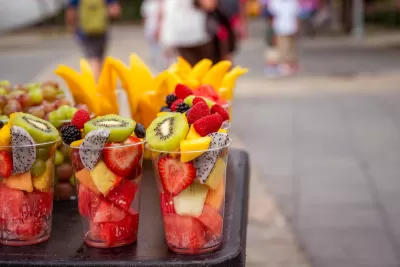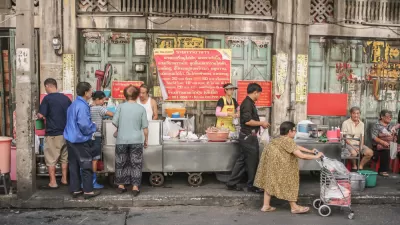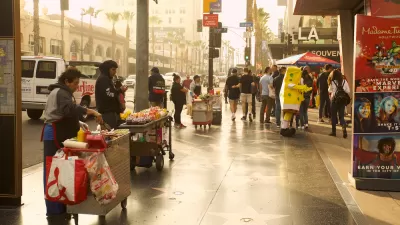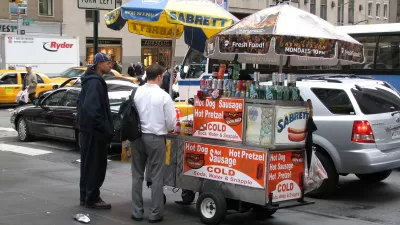The District’s new regulations lower permit fees, reduce barriers to entry for vendors, and decriminalize vending offenses.

Writing in Next City, Oscar Perry Abello asserts that “Street vending is supposed to be the informal version of commerce. In this country, lawmakers and law enforcement have made attempts to codify street vending, and usually it gets pretty ugly, pretty quickly.”
But Abello goes on to express optimism that Washington, D.C.’s new street vending regulations could strike the right balance of regulatory oversight and the practical considerations of street vendors.
The District’s street vendor licensing and permitting fees are now dramatically lower, as are fines for violations. Criminal background checks are no longer permitted as part of the street vending application process, meaning unpaid parking tickets or previous incarceration are no longer barriers to obtaining D.C. street vendor licenses or permits. Street vending violations are no longer a criminal offense, and no longer enforced by the police department.
For organizers in D.C., the victory hinged on narrative change, Abello writes. Advocates worked to change the public perception of street vending and highlight the vulnerability of vendors. The new law creates a framework for integrating vendors into the streetscape and creating “a commons-like relationship with street vendors.”
FULL STORY: D.C.’s Street Vendor Regulations Formalize The Informal

Trump Administration Could Effectively End Housing Voucher Program
Federal officials are eyeing major cuts to the Section 8 program that helps millions of low-income households pay rent.

Planetizen Federal Action Tracker
A weekly monitor of how Trump’s orders and actions are impacting planners and planning in America.

Ken Jennings Launches Transit Web Series
The Jeopardy champ wants you to ride public transit.

Washington Legislature Passes Rent Increase Cap
A bill that caps rent increases at 7 percent plus inflation is headed to the governor’s desk.

From Planning to Action: How LA County Is Rethinking Climate Resilience
Chief Sustainability Officer Rita Kampalath outlines the County’s shift from planning to implementation in its climate resilience efforts, emphasizing cross-departmental coordination, updated recovery strategies, and the need for flexible funding.

New Mexico Aging Department Commits to Helping Seniors Age ‘In Place’ and ‘Autonomously’ in New Draft Plan
As New Mexico’s population of seniors continues to grow, the state’s aging department is proposing expanded initiatives to help seniors maintain their autonomy while also supporting family caregivers.
Urban Design for Planners 1: Software Tools
This six-course series explores essential urban design concepts using open source software and equips planners with the tools they need to participate fully in the urban design process.
Planning for Universal Design
Learn the tools for implementing Universal Design in planning regulations.
Heyer Gruel & Associates PA
Ada County Highway District
Institute for Housing and Urban Development Studies (IHS)
City of Grandview
Harvard GSD Executive Education
Toledo-Lucas County Plan Commissions
Salt Lake City
NYU Wagner Graduate School of Public Service





























